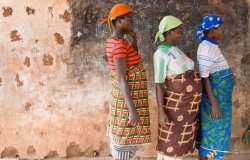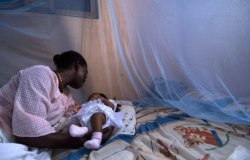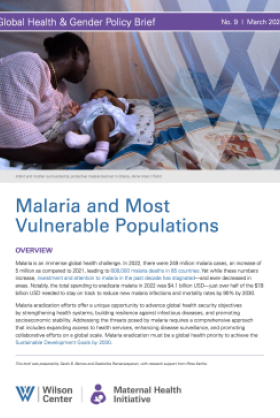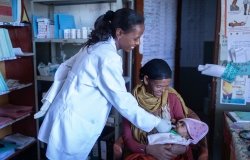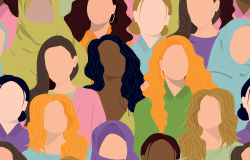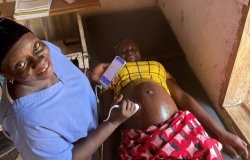Majority of Countries Will Fall Short of Millennium Development Goals, Says World Bank and IMF
April 2008 - A new World Bank-International Monetary Fund report finds that many countries will fail to achieve the Millennium Development Goals set for 2015.
The World Bank and International Monetary Fund (IMF) recently released a Global Monitoring Report that evaluates Millennium Development Goal (MDG) progress worldwide. Although advancement has been made in some countries, the report highlights grave shortfalls in human development areas, especially in South Asia and Sub-Saharan Africa. The report finds that "prospects are gravest in health", particularly with reducing child and maternal mortality and increasing access to basic sanitation.
Robert B. Zoellick, World Bank President, drew attention to the target of eradicating hunger, stating, "I am particularly concerned about the risks of failing to meet the goal of reducing hunger and malnutrition, the ‘forgotten MDG'. As the report shows, reducing malnutrition has a ‘multiplier' effect, contributing to success in other MDGs including maternal health, infant mortality, and education." The report calls for ‘inclusive and sustainable development' to fuel lagging countries towards MDG attainment.
Concerns of slow progress toward meeting MDGs four and five—reducing child mortality and improving maternal health, respectively—were also expressed at recent Global Health Initiative events on child and maternal nutrition and maternal mortality (see below). Both events offered evidence-based strategies for improvement.
Related Links
Related Program

Maternal Health Initiative
Life and health are the most basic human rights, yet disparities between and within countries continue to grow. No single solution or institution can address the variety of health concerns the world faces. By leveraging, building on, and coordinating the Wilson Center’s strong regional and cross-cutting programming, the Maternal Health Initiative (MHI) promotes dialogue and understanding among practitioners, scholars, community leaders, and policymakers. Read more
